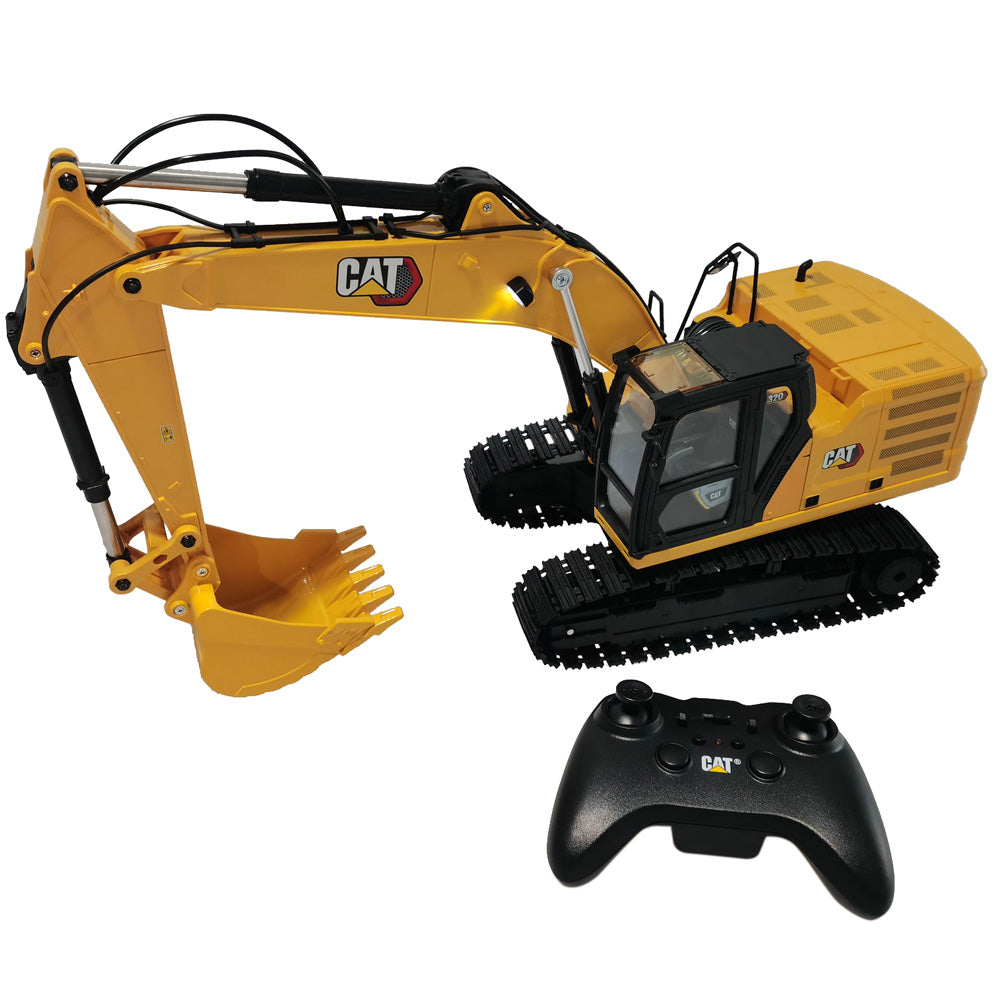Discover the Relevance of Excavator in Modern Construction Projects
Excavators are crucial tools in contemporary building and construction projects. Their flexibility allows them to execute a wide variety of jobs, from excavating and grading to demolition and website prep work. Advanced features, such as hydraulic accessories and general practitioners, enhance their capacities and efficiency on work sites. As the market evolves, the significance of excavators expands a lot more. Understanding their duty can reveal understandings right into the future of building and construction techniques. What lies ahead for these equipments?
The Adaptability of Excavators in Numerous Projects
Although excavators are typically connected with large building projects, their versatility permits them to be used in a variety of applications, from household landscape design to energy maintenance. In city settings, excavators can navigate limited spaces to dig structures for homes or install drain systems. Their capacity to do fragile jobs makes them excellent for landscape design jobs, where they can excavate for ponds or plant trees. On top of that, excavators play an important role in energy upkeep, successfully digging trenches for pipes or cable televisions without interfering with bordering locations. In agricultural applications, they assist in land clearing up and dirt prep work. Their adaptability enables them to be equipped with various add-ons, boosting their functionality throughout different tasks. This complex nature of excavators not only streamlines numerous building processes however additionally shows their important duty in modern-day infrastructure advancement and maintenance.
Trick Features and Kinds Of Excavators
The discussion on key functions and sorts of excavators highlights the vital qualities that make these equipments indispensable in construction. Various excavator kinds, each developed for certain jobs, demonstrate their adaptability and performance across different applications. rc excavator. Comprehending these functions and classifications is crucial for enhancing their use in modern-day construction jobs
Excavator Enters Summary
Excavators play a critical function in contemporary construction, using versatility and performance throughout various jobs. These hefty equipment devices come in numerous types, each customized for certain applications. One of the most common types include crawler excavators, recognized for their stability on unequal surface, and wheeled excavators, which offer greater movement on paved surfaces. Small excavators are preferred for limited rooms and small jobs, while long-reach excavators are designed for deep digging. Additionally, there are customized excavators, such as hydraulic excavators, which boost power and accuracy. Each type features special abilities, making them essential for jobs varying from excavating and grading to demolition and material handling. Understanding these variants enables building and construction experts to choose the appropriate excavator for their task requires.
Secret Features Explained
Recognizing the essential attributes of excavators improves their effective application in building and construction projects. Excavators are characterized by their effective hydraulic systems, which offer the required pressure for digging, training, and relocating materials. Their expressed arms enable a large range of movement, assisting in accurate operations in constrained spaces. In addition, the selection of attachments, such as buckets, grapples, and augers, broadens their flexibility to fulfill various task needs. The size and weight of excavators also contribute to their security and ability to move on different surfaces. Innovations in technology have actually led to the assimilation of GPS and automation, boosting accuracy and performance in excavation jobs. These functions collectively place excavators as important tools in contemporary building.
Applications in Building and construction
Changing building and construction websites, excavators play a crucial role across numerous applications, ranging from property building tasks to large infrastructure growths. These functional devices are furnished for jobs such as excavating foundations, trenching for utilities, and site grading. Different sorts of excavators, consisting of crawler, wheeled, and mini excavators, provide particular benefits tailored to the task demands. Crawler excavators master harsh terrains, while rolled excavators offer mobility on smooth surface areas. Tiny excavators are suitable for confined rooms, making them popular in urban settings. The performance and power of excavators substantially quicken construction procedures, making sure timely project conclusion. Their adaptability further enhances their importance, allowing building groups to deal with a diverse range of difficulties successfully.
Enhancing Effectiveness and Efficiency on Job Sites
Maximizing effectiveness and efficiency on work sites is an important goal in contemporary construction. Excavators play a crucial function in achieving this goal by improving numerous jobs. Their capacity to carry out numerous functions-- such as training, grading, and digging-- lowers the need for added equipment, thus conserving time and resources.Moreover, excavators improve operations by enabling faster completion of jobs. With advanced functions like hydraulic attachments and GPS innovation, they can carry out accurate operations that reduce errors and rework. This precision not only boosts the high quality of job however likewise optimizes material usage, adding to cost savings.The versatility of excavators allows them to adjust to various site conditions, guaranteeing that jobs advance smoothly no matter of challenges. useful source By incorporating excavators into construction processes, groups can greatly improve their overall performance, leading to prompt task conclusion and boosted productivity.
Security Benefits of Making Use Of Excavators
Excavators greatly improve safety on building and construction sites via improved driver visibility and decreased manual work risks. By giving operators with a clear sight of their environments, excavators aid to stop crashes and injuries. Furthermore, the equipment lessens the demand for workers to take part in dangerous hand-operated tasks, better advertising a much safer workplace.
Improved Driver Presence
Building sites can be chaotic and filled with potential dangers, enhanced driver visibility plays a vital role in making sure safety and security when using excavators. Modern excavators are created with large, unhampered home windows and purposefully positioned mirrors, enabling drivers to keep a clear sight of their environments (rc excavator). This enhanced presence is essential for identifying pedestrians, various other equipment, and various barriers, significantly reducing the threat of crashes. Furthermore, many excavators integrate advanced modern technology, such as sensing units and cameras, to supply drivers with additional viewpoints, further enhancing awareness. The capability to see more clearly not only aids in reliable operation but likewise promotes a more secure workplace, making it much easier for operators to browse complicated construction sites without compromising safety standards
Decreased Handbook Labor Dangers
When manual work is reduced via using excavators, many safety and security benefits arise, noticeably enhancing the health of building and construction workers. Excavators decrease the physical stress related to heavy lifting and recurring tasks, efficiently reducing the risk of musculoskeletal injuries. By automating procedures such as excavating, grading, and moving products, they allow workers to preserve a safer range from possible risks. Additionally, excavators are equipped with innovative safety and security features, such as rollover protection systems and boosted driver ergonomics, which even more safeguard employees on site. The result is a considerable decrease in office mishaps and injuries, leading to enhanced efficiency and spirits among building groups. Ultimately, the fostering of excavators adds to a safer and much more reliable building setting.
Excavators in Earthmoving and Site Prep Work
In modern-day building, a considerable portion of earthmoving and website preparation tasks relies upon the effectiveness and convenience of excavators. These makers are created to deal with various soil kinds and surface, making them essential for grading, digging, and trenching tasks. Their hydraulic arms can be outfitted with different accessories, such as augers and buckets, allowing drivers to customize their technique based on details job requirements.Excavators excel at moving huge volumes of planet rapidly and efficiently, which speeds up the overall construction timeline. They can navigate tight areas and challenging websites where typical equipment may battle, improving efficiency. In addition, the precision of excavators guarantees that site prep work follows strict requirements, minimizing the danger of mistakes that could cause expensive rework.
The Function of Excavators in Demolition Tasks
Excavators play an important duty in demolition tasks, as they have the power and why not try this out agility needed to take apart structures effectively. Geared up with numerous accessories such as hydraulic breakers, shears, and grapples, these equipments can adjust to various demolition requirements, whether for tiny structures or big industrial websites. Their versatility enables operators to deal with complex jobs while maintaining safety and precision.In addition to their demolition capacities, excavators promote debris removal, making certain that work sites stay safe and organized. By breaking down frameworks into manageable items, they permit for structured clearing and recycling of materials, lining up with modern-day sustainability efforts.Moreover, excavators can access limited spaces and browse uneven terrain, making them crucial in city demolition projects. Overall, their robust design and multifunctionality make excavators a vital asset in the demolition stage of building and construction, contributing considerably to project timelines and efficiency.


Future Patterns in Excavator Technology and Usage
As the building and construction sector advances, advancements in excavator innovation are poised to change their use and efficiency substantially. One substantial pattern is the combination of her response automation and expert system, permitting excavators to run with minimal human intervention. This shift will certainly improve accuracy in jobs such as grading and trenching, decreasing human error and increasing productivity.Additionally, the increase of hybrid and electrical excavators is forming an extra lasting building environment, lowering carbon discharges and fuel costs. Improved telematics systems are likewise emerging, enabling real-time monitoring of machine efficiency and upkeep needs, which can bring about far better functional performance and longer tools lifespan.Moreover, improvements in attachment modern technology are expanding the adaptability of excavators, enabling them to do a broader range of tasks. The combination of these trends shows a future where excavators are smarter, greener, and much more versatile, inevitably improving building project dynamics.
Regularly Asked Inquiries
How Do Excavators Contrast to Various Other Construction Equipment?
Excavators, characterized by their convenience and power, succeed in digging and earthmoving contrasted to other machinery. Their ability to execute numerous tasks, including training and demolition, makes them indispensable in building and construction projects, enhancing total effectiveness.

What Is the Average Life Expectancy of an Excavator?
The average lifespan of an excavator normally ranges from 7,000 to 10,000 operating hours, depending on upkeep, use conditions, and design. Proper care can extend this life-span, guaranteeing peak efficiency throughout its functional years.
Just How Are Excavators Preserved for Optimal Performance?
Excavators call for normal upkeep for peak performance, including routine evaluations, fluid checks, filter substitutes, and timely fixings. Carrying out a precautionary maintenance routine helps lengthen their lifespan and warranties effective procedure in different building and construction environments.
What Are the Costs Related To Leasing vs. Purchasing an Excavator?
The prices related to renting out versus getting an excavator differ considerably. Renting deals reduced upfront expenses however can accumulate with time, while purchasing calls for a substantial preliminary investment, but provides long-term cost savings and property ownership benefits.
What Training Is Called For to Operate an Excavator?
Running an excavator needs specialized training, normally consisting of safety protocols, machine operation strategies, and ecological recognition. Certification programs usually mandate sensible experience, enabling operators to manage various jobs efficiently while guaranteeing compliance with industry guidelines. The most usual kinds include spider excavators, recognized for their security on unequal surface, and wheeled excavators, which offer greater movement on smooth surfaces. Tiny excavators are favored for small-scale tasks and limited spaces, while long-reach excavators are made for deep excavating. Furthermore, there are specialized excavators, such as hydraulic excavators, which improve power and accuracy. Various kinds of excavators, consisting of spider, wheeled, and mini excavators, supply details benefits customized to the task requirements. Crawler excavators excel in harsh surfaces, while wheeled excavators use flexibility on paved surface areas.